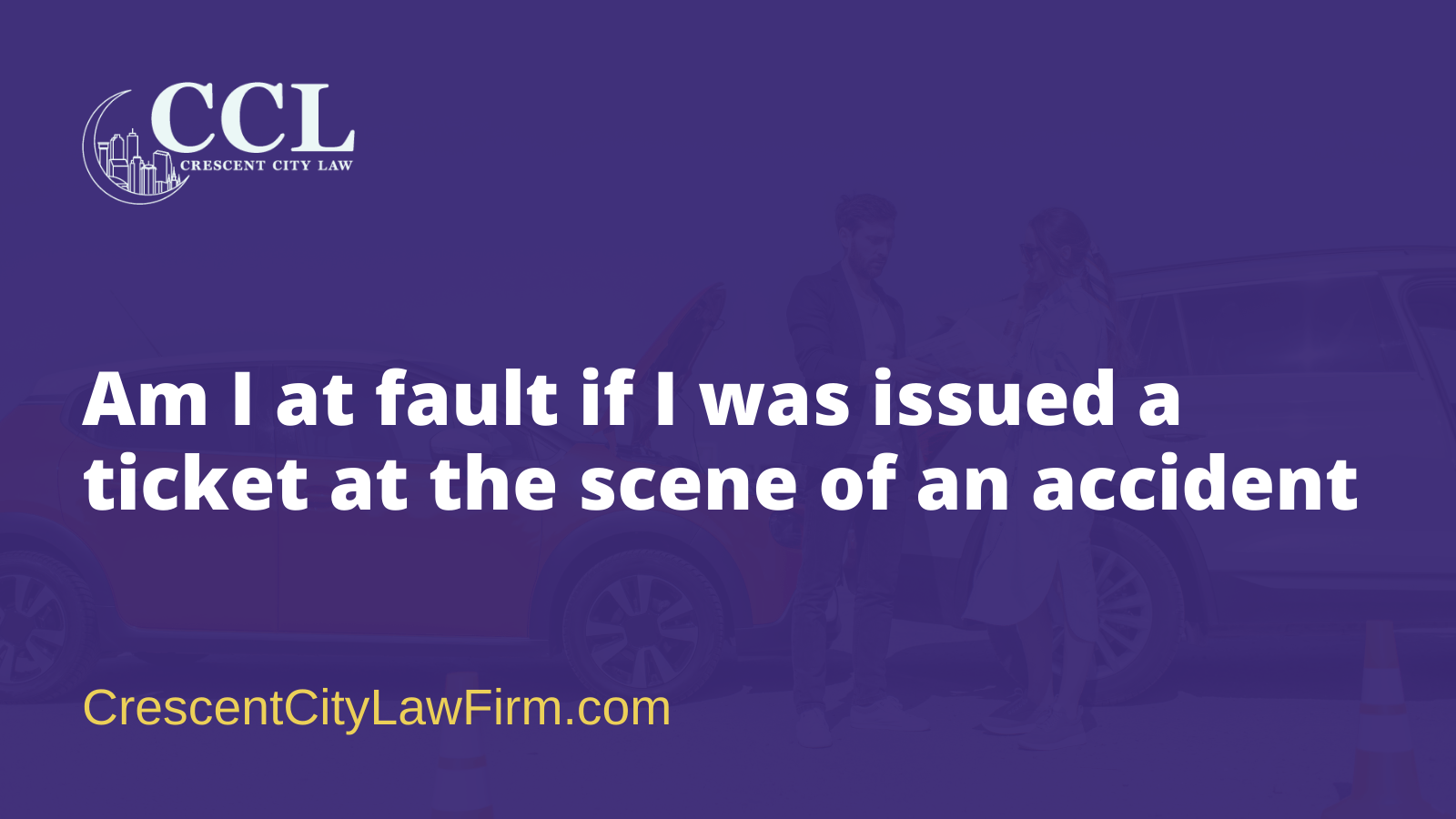There’s nothing as frustrating as a speeding ticket. Maybe you were running late for work, or maybe you were trying to get to your kids’ school on time to pick them up from soccer practice. But the police had other ideas.
Whatever the reason you were speeding, you’re probably curious about any chance you might have of getting out of this speeding ticket. A common misconception is that the police officer who pulled you over is required to show you the speed you were going on their radar gun.
However, just because the police officer used a radar gun doesn’t mean there’s no way to fight your speeding ticket, especially if you have an experienced New Orleans traffic attorney by your side. Read on to learn about the different types of radar guns, inaccuracies they have, and how our attorneys at Crescent City Law can help you use that information to fight your ticket in court.
Radar gun laws and types
There is no federal or Louisiana state law that requires that a police officer show someone their radar gun before issuing them a ticket for speeding. If you ask, the officer might show it to you as a courtesy, but they don’t have any obligation.
There are three types of radar guns commonly used by police officers: stationary radar, moving radar, and lidar. They each have pros and cons in terms of accuracy and reliability, which means they can each be fought in court.
- Stationary radar guns are the most common type to be found in a police cruiser. They use a wide radar beam to measure an object’s speed using the Doppler Effect. They also tend to be the least reliable and can be challenged relatively easily.
- Moving radar guns are a bit more high-tech due to their use of two antennas operating on different frequencies. This makes them more accurate than stationary radar guns, but it also means it’s harder to keep them calibrated.
- Lidar guns use a very tight laser beam to detect an object’s speed within 1 mph. Lidar guns are more commonly found on traffic cameras, but some police vehicles have them as well. Because lidar guns are so precise, they have to be aimed directly at the front of a car for a suspended period of time, which means it is possible to question whether the police officer operated it correctly.
How to dispute your speed on a police officer’s radar gun
Depending on the type of radar gun used, there are a number of potential accuracy issues that you can use to cast doubt on the police officer’s reading. Here are some of the things you should consider investigating if you are skeptical that the police officer’s reading was accurate.
- The radar gun’s calibration records: All speed-detecting devices need to be carefully calibrated to be accurate, especially moving radar guns. You can subpoena the radar gun’s calibration records, and if it has been more than the allowed time since it was last calibrated, you can use that to dispute the speed that the officer recorded you going.
- The officer’s radar training: If the police officer who pulled you over failed to undergo proper training on the use of their radar or lidar technology, you can cast doubt on the accuracy of their reading.
- Interference on the scene: There are all kinds of things that can go wrong on the road to distort a radar gun’s readings. For example, the gun could measure the speed of the wrong vehicle, which is common with the wide-beamed stationary radar guns. There may have been obscuring weather or road conditions that interrupted the officer’s reading. This can cast doubt on lidar readings as they require precise and sustained aim.
Bringing evidence of any of these errors to court may not necessarily get you out of your speeding ticket. However, with an experienced New Orleans traffic attorney guiding you through the process, you’ll have a better chance of disputing the police officer’s findings.
Hire a New Orleans traffic attorney today
Crescent City Law has the years of experience and knowledge of Louisiana traffic ticket court processes to make sure no stone is left unturned. If there is a way for you to dispute your radar-backed speeding ticket, you can be sure we’ll help you make use of it. Contact us today to discuss your options with a free consultation, or submit your ticket to see if you are eligible.






